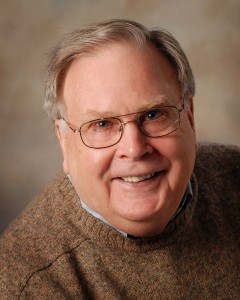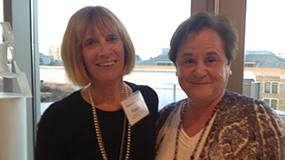 She had a well established private practice and was highly trained with a PhD in psychology and had completed psychoanalytic training. Yet, she was coming to me to be both tutored and supervised in Motivational Interviewing (MI). I was surprised. Here was a therapist who had a well developed theoretical orientation and, from her initial tapes, was effective at deploying the strategies she had learned in her analytic training.
She had a well established private practice and was highly trained with a PhD in psychology and had completed psychoanalytic training. Yet, she was coming to me to be both tutored and supervised in Motivational Interviewing (MI). I was surprised. Here was a therapist who had a well developed theoretical orientation and, from her initial tapes, was effective at deploying the strategies she had learned in her analytic training.
How was she thinking about this? Was she rejecting her training? Or, was she shopping for some tools to add to her current practice style? We spent the first couple of sessions exploring these questions because they are critical to moving from one way of practicing to another. I knew, from a couple of decades working with MI trainees, that it was not sufficient to simply learn the theory and techniques of MI, you also have to reject previous ways of thinking and being. If this does not take place, the shift to the “spirit” of MI never fully develops. Or, rather than the clarity of earth and water, you have mud. Mud can be interesting and fun to play in, but it does not have the elegance and effectiveness of a clear cut set of assumptions about the nature of people, how they develop, and how they change.
She had wanted to make some changes in her personal life and had not been making much headway. She had heard about MI, read some of the literature, and the more we delved into what MI is about, it became clearer that she wanted more than supervision, she wanted to experience MI as a client. That is where we began. It is also parallel to the manner in which she had learned psychoanalysis, so it was comfortable for her. We were not role playing, we were working. Five sessions later she was a convert.
I use the word convert deliberately. I don’t think one learns in the same way one learns how to drive a car. It is closer to a conversion experience that changes how one identifies one’s practice orientation. Learning the specific skills and techniques takes some time. To master them takes a few years. First, though, comes the conversion. That can be unsettling because it also involves rejecting beliefs and practices that have become comfortable and habitual.
About Vaughn F. Keller, MFT, EdD
Understanding and promoting change –social, organizational, individual – has been the organizing theme of Vaughn Keller’s career. He has worked in health care, social change, and communications as a leader, clinician, clinical supervisor, and consultant. His graduate studies have led to degrees and certifications in systems theory, administration and policy studies, marriage and family therapy, gestalt therapy, and the creation of development programs for professionals.
Dr. Keller has been the Director of the Health Behavior Laboratory at the University of Miami-Humana Health Services Research Center, Associate Director of the Institute for Health Care Communication, coordinator of clinical supervision at Southern Connecticut State University, and on the faculties of the University of Miami and Yale Schools of Medicine.
He conducts research on Motivational Interviewing as well as education and communication in the health care setting and is a frequent contributor to journals and professional conferences. He can be reached at vfkeller@gmail.com .
 When Dr. Keller is not wearing his clinical supervisory “hat”, he is also the author of a popular a crime-drama book titled, Behind the Neon: A Frank Kelly Novel, available on Amazon.
When Dr. Keller is not wearing his clinical supervisory “hat”, he is also the author of a popular a crime-drama book titled, Behind the Neon: A Frank Kelly Novel, available on Amazon.



